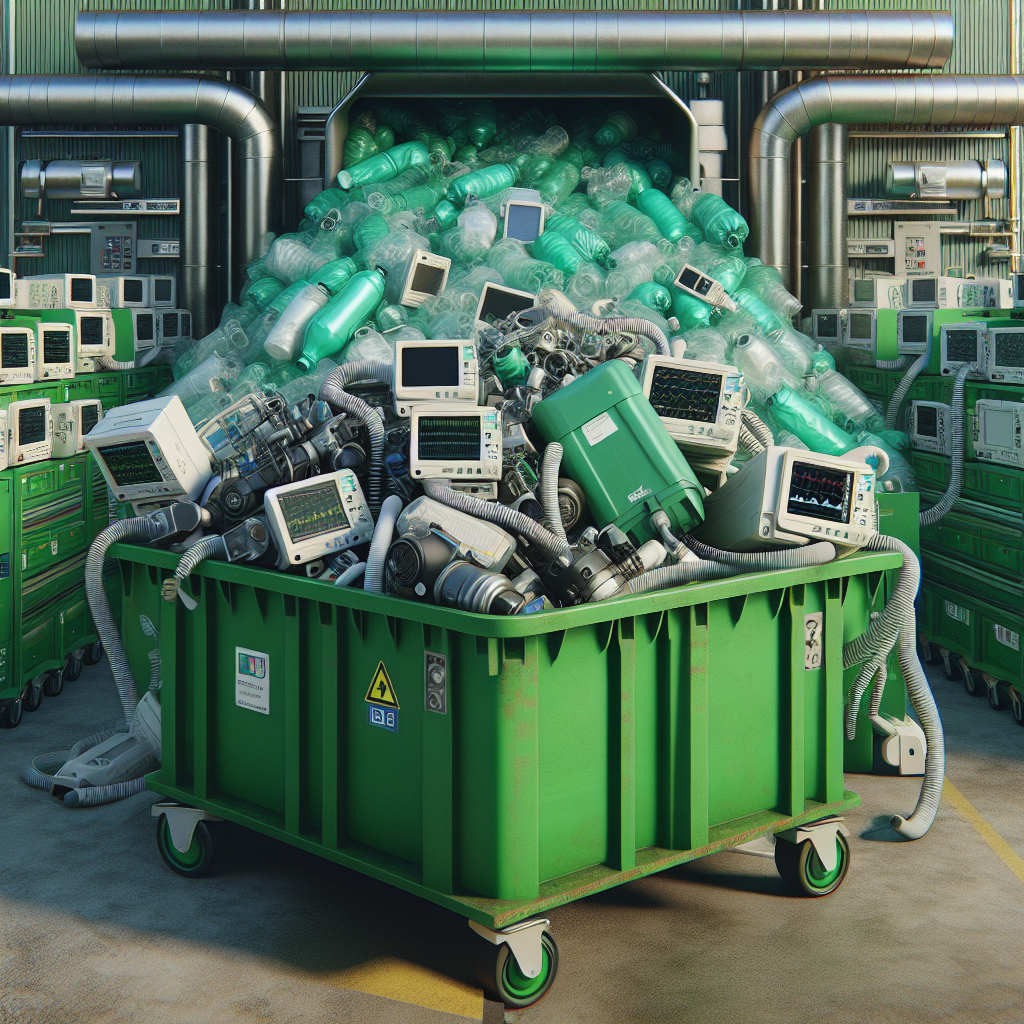Blog Ecobraz Eigre

Disposal of Monitors, Respirators and ICU Equipment
Introduction to the Disposal of Hospital Equipment
Monitors, respirators and other Intensive Care Unit (ICU) equipment are critical devices for health care, but require proper handling at the end of their useful life. Incorrect disposal of this equipment can lead to environmental and public health risks, due to the electro-electronic components and biological materials involved.
Applicable Legislation and Current Regulations
The disposal of these devices follows specific guidelines established by the National Solid Waste Policy (Law No. 12.305/2010), which provides for integrated management and shared management of solid waste. According to Article 33 of this law, electrical and electronic waste must be sent for reuse, recycling or environmentally appropriate final disposal.
In addition, the National Solid Waste Management Information System (SINIR) offers guidelines for handling this type of waste. In line with this, technical standards from the National Health Surveillance Agency (ANVISA) govern the decontamination and disposal of equipment in contact with bodily fluids.
Technical Procedures for Safe Disposal
The disposal of monitors and respirators should begin with technical deactivation, ensuring the removal of hazardous components such as lithium batteries and sensitive electronic circuits. Equipment containing digitally stored information, such as physiological monitors, must go through the sanitization process, ensuring the definitive elimination of sensitive data. This procedure must be carried out by services specializing in sanitizing hard drives and electronic media.
Recyclable materials must then be sent to certified recycling units, while biocontaminated waste from respirators and devices used in ICUs receives specific treatment, in accordance with ANVISA regulations and state environmental agencies, such as CETESB (Companhia Ambiental do Estado de São Paulo).
Importance of Specialized Collection
Due to the complexity and potential for contamination, the collection of hospital electronic waste must be carried out by specialized services that guarantee safe handling and comply with environmental legislation. To schedule the collection of hospital electronic waste, it is recommended to use recognized channels such as electronics collection scheduling.
Final Considerations
The correct disposal of monitors, respirators and other ICU equipment is an essential practice for environmental sustainability and health safety. Complying with current legislation, sanitizing the data and sending the waste for appropriate treatment avoids environmental liabilities and promotes social and environmental responsibility.
The correct disposal of monitors, respirators and other ICU equipment is an essential practice for environmental sustainability and health safety.

Deixe um comentário
O seu endereço de e-mail não será publicado. Campos obrigatórios são marcados com *